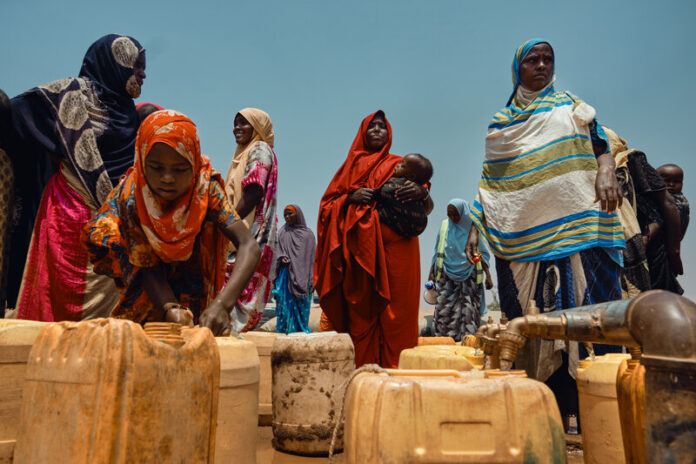MOGADISHU (KAAB TV) – The United Nations has called for a strategic shift to address the severe impacts of the climate crisis on livelihoods, displacement, inequality, and security in Somalia, as the East African country becomes one of the hardest hit.
Speaking at a symposium in Mogadishu on Sunday, the UN Deputy Special Representative of the Secretary-General and UN Resident and Humanitarian Coordinator for Somalia, George Conway, stressed the urgent need for increased investment in climate adaptation and resilience to protect the lives and livelihoods of millions.
“2023 began with the culmination of the worst drought Somalia has faced in over 50 years, affecting millions, and ended with the worst flooding in a century,” said Conway.

With nearly two-thirds of Somalia’s population relying on agriculture and livestock for their income, the country’s vulnerability to climate change is critical. The drought of 2022, the worst in 40 years, was made 100 times more likely by human-induced climate change, according to scientists.
“Humanitarian aid is crucial for saving lives. But unless we invest in adaptation and resilience, the country’s chronic vulnerability will only increase,” Conway warned.
One of the regions hardest hit is Southwest State, where local authorities in July called for urgent action to address the crisis. President Abdiaziz Hassan Mohamed (Laftagareen) voiced grave concern over widespread hunger in the region, historically known as Somalia’s breadbasket.
“In Southwest State, people depend on farming and herding, but they now face a combined crisis of conflict and climate change,” President Laftagareen stated during a press briefing.
Local authorities have recognized the need for external support from stakeholders, including the media, international community, and developed nations, stressing the importance of climate justice for the most affected communities.

“We used to rely on three agricultural seasons: the Gu’ rains starting in April, the Deyr, and the dry season. But now, even in the rainy season, crops fail due to climate change. This is unprecedented,” President Laftagareen explained.
“Our communities and farmers need awareness and education to adapt to these new challenges,” he added.


